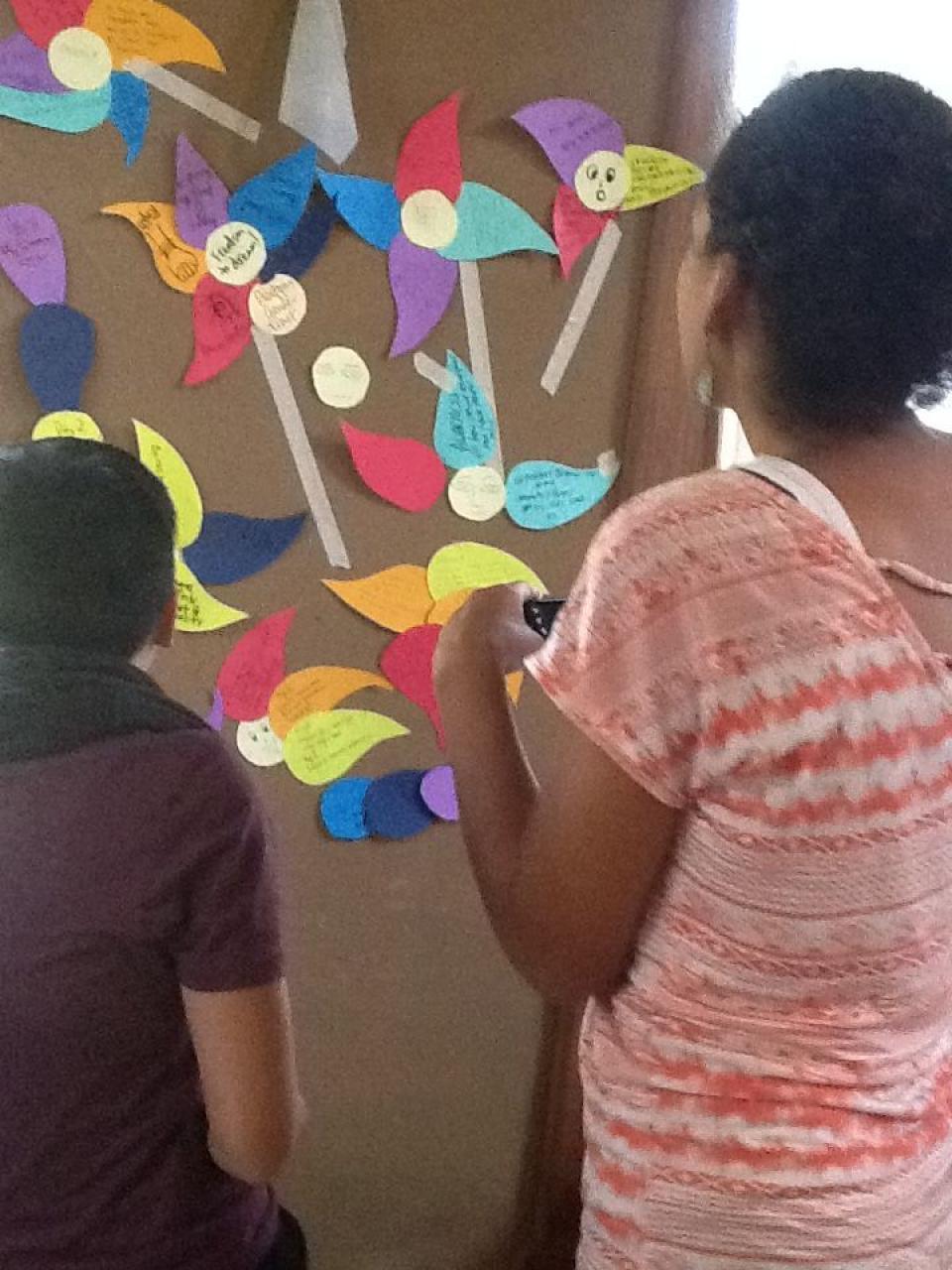
‘It’s like a library’
‘But it’s not organised – it’s chaotic. That’s just the impression you get’
‘An electromagnetic web of information’
‘It’s the tech equivalent of a collective consciousness’
‘It’s basically you connecting to a larger network. Computers connected throughout the world’
The internet is an important part of many of our daily lives, work and activism – but how many of us actually understand what it is?
The internet works through networking, so imagine networking as a game. If you get two or more people to agree, you can play. The rules of this game are called internet protocols, which allow information to go from one place to another according to a shared agreement between all the key players.
So how does the information know where to go? Says Jac sm Kee from APC Women, ‘Think about it like this: you are writing an email, which is basically a letter. So think about post. What do you need? An address. On the internet, the IP is the address. Your device has an address, and the device you are sending it to needs an address.’ In this way, with a unique address for each device, emails and information that are broken up into several components on their way to their destination can be correctly reassembled and received without getting lost.
Does your IP address mean whatever you do online can always be traced? In a word, yes. But that’s not cause for panic, says Maya Ganesh from the Tactical Technology Collective. ‘Think of a computer and phone in terms of what they do. They record information and they share information… All of this is about sharing information… The chances are that it will always be possible to find you. That’s the nature of the internet, and it’s also what’s fabulous about the internet. And it’s not a reason to get paranoid.’
Beyond mechanics, questions around who governs the internet are key to contextualising the struggle for rights – including sexuality rights – online. Since its inception, the people who have used and shaped the internet have changed across the decades. Here’s a rough chronology:
1960s: the military
1970/80s: the academic community
1991: common people, now known as ‘users’
Late 90s: banks first, seeing the potential for investment; then the entertainment industry, and in particular, Hollywood
Early to mid-2000s: the State, who finally recognised the power of this platform and wanted in on it
Each group of people – or stakeholders – continues to play a role in how the internet is run or governed. The development of the internet also demonstrates an innovation in the way global governance works, because given all the players involved, no single party can claim to control the internet entirely.
However, all the stakeholders don’t necessarily get along. As states tried to exercise more control over the internet, civil society (comprising human rights activists, members of the academia, and technical communities) as well as some in the private sector, pushed back. This input by civil society also first introduced human rights into the conversation around internet governance.
Today, the Internet Governance Forum (IGF) is a global platform that facilitates conversations between different stakeholders on issues related to the internet and how it is governed. Amongst them is the opportunity to talk about rights online. While it doesn’t make decisions, the IGF acts as a soft influential space, and allows rights activists to engage with many key players, including ‘internet giants’ like Google and Facebook. Speaking at one of the IGF sessions, the UN Special Rapporteur strongly advocated for human rights online, saying that just because the medium is different doesn’t mean that the rights change. He also subsequently wrote a report on the Freedom of Expression and Opinion for the Human Rights Commission with a focus on the internet.
One of the biggest issues affecting Internet governance is intermediary liability, which means that intermediaries, rather than governments, are responsible for what happens online. While intermediaries originally just meant Internet Service Providers (ISPs), they now also include internet portals, software, and games providers, including social media networks, chat rooms, and so on. Says Jac, ‘Intermediary liability means that there are layers, and the buck can always be passed. [Ultimately], who really governs the internet?’
This is an important question for sexual rights activists and the work they do. For example, when websites with information around sexual health and sexual rights get blocked, it can be difficult to pinpoint who the correct person to engage with is. Is it the government enforcing particular laws; is it the ISP for installing filtering software; is it a search engine company like Microsoft Bing or Yahoo! (both of whom block ‘sex’-related searches in India); or is it Facebook taking down content because it apparently violates their policies? It can be extremely difficult to tell.
Similarly, when sexual rights activists face threats online – from being harassed, to being stalked, to violations of privacy – who can we turn to for redress, justice, and action? If it’s the courts, are the laws strong enough? If it’s the intermediaries, what are the principles behind their policies? Who are they accountable to? These questions are also reasons why sexual rights activists need to engage with and influence how the internet is governed, so that conversations around human rights and the internet include the struggles, concerns and advancements of sexual rights activism. This is also one aspect of what EROTICS India is all about.
To learn more about – or get involved in – internet governance, visit The Diplo Foundation’s website.
To find out more about internet governance and policies from a gendered perspective, visit the APC GenderIT.org website.
- 6834 views






Add new comment